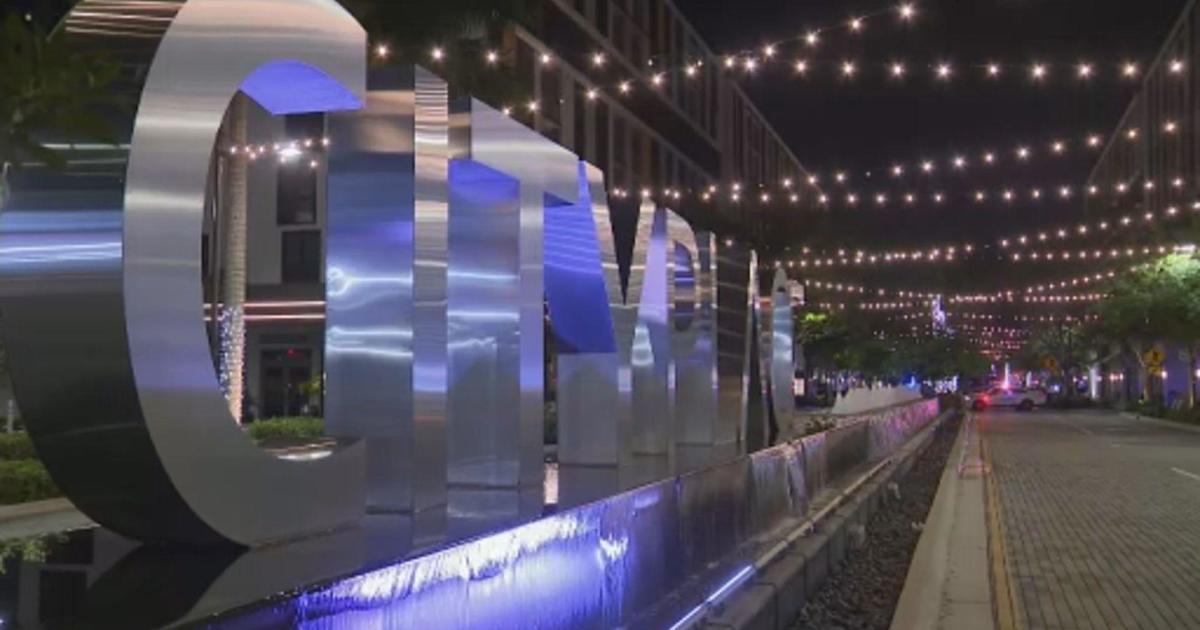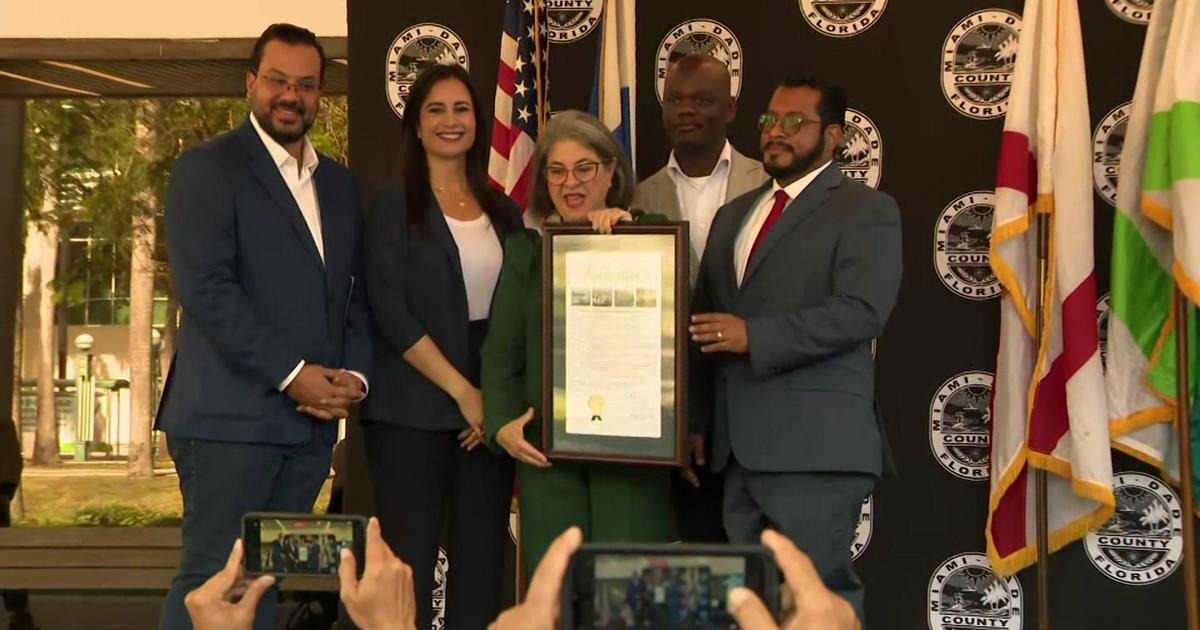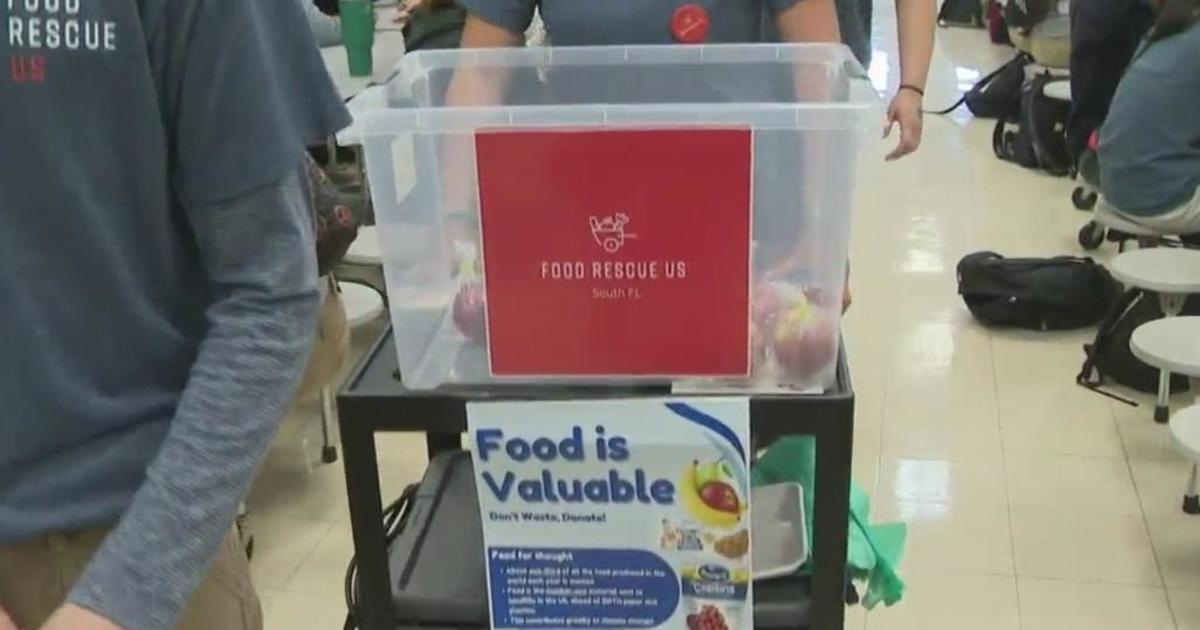Sofia's Story: Inside The Homestead Facility For Unaccompanied Minors
MIAMI (CBSMiami) – For more than a year, the detention center for migrant children near Homestead has been the target of daily protests and lawsuits. Members of Congress have pressed for change while Amnesty International recently released a report arguing the center it violates international norms for the treatment of child refugees.
But missing from this debate has been the voice of the children themselves.
Children like a girl we are calling Sofia. (Her name has been changed at the request of her attorneys because of fear her family in Central America could be at risk.)
For 82 days, Sofia would wake up each morning and for just a moment, forget she was inside Homestead.
And then it would hit her.
"I would realize I was in a place where I felt the people there couldn't understand what we were going through and what we were feeling," she said.
Sofia is one of the 13,000 plus children dispatched to the Homestead detention center since it re-opened in 2017. Some stay just a few weeks, others for months on end.
"It was very nice on one hand," she explained, "but on the other, you need the warmth of your family."
The 17-year-old travelled from Honduras to the United States with her older sister, and her sister's children. But after being apprehended by federal agents at the Texas border, Sofia was separated from her sister.
"It was really hard because they wouldn't let me let me speak to her or see her," she said. "I was afraid they would send me back without my sister. I was so scared."
On her own for the first time, Sofia spent four days in an overcrowded cell in Texas before being flown to Homestead. While the Homestead facility was nicer than Texas, Sofia claimed some of the workers ridiculed them.
"There became a time when the ladies that were taking of care of us, most of them were grossed out by us," she recalled. "They would tell us that Hondurans were dirty and all we would do is just make the place dirty. Several of these ladies would make us feel bad."
Sofia recalled one of the workers threatening to have one girl deported.
"She said to the girl, `Did you expect the United States was going to receive you with open arms?' So, the girl said, `No, I'm just asking a question.' The lady said, `No, all of you deserve to be deported for intruding this country.'"
Sofia imagined what she would have told the worker.
"I would tell them they can't really talk," she said. "And they can't judge us because they don't know why we came here, what we've suffered, and what we've done to come here."
Sofia was born just outside the city dubbed the murder capital of the world – San Pedro Sula in Honduras. After her mother died of cancer and her brother was reportedly killed by a neighborhood street gang, Sofia's sister made the decision that they should flee to the United States.
"She felt that my life was at stake and I was in danger in Honduras," she said, adding the family was receiving death threats.
From Honduras they travelled through Guatemala to Villahermosa in southern Mexico where they met a coyote who said he would take them on the thousand mile journey to Texas. But instead the coyote robbed and abandoned them.
They pushed forward anyway taking a bus nearly 500 miles to Mexico City
"We met these boys in Mexico City, who were also coming," she noted. "We traveled together and they helped us cross the border."
When they waded across the Rio Grande, border agents were standing on the banks of the river waiting to take them into custody. She said she was relieved the month-long journey was over.
"I thought `I'm finally where I want to be and I'm going to be able to move forward soon,'" she said.
Instead, on April 2, she was sent to Homestead. After her arrival she was permitted two, ten minute calls a week with family members, including her sister, who had been released and was with a cousin in Texas.
Sofia said she often found herself crying at the end of the calls.
"I just wanted to leave and be where my sister was," she said. "I just wanted to be with her and I wasn't able to do that."
While some of the workers in Homestead taunted them, Sofia said others were nice.
"Some of them did feel our pain and in fact one of them was fired because she kissed one of the little girls on the cheek," Sofia noted. "They told her she was getting fired because they are not supposed to have any physical contact with us. So she was fired because she was helping a little girl.
"And nobody understood why things were like that in this place," she added incredulously.
Kids need comfort and support, Sofia said especially in Homestead where you never knowing when or if you were going to be released.
"It's a time when you suffer a lot, especially when you are separated from your family, you just feel that nobody is there for you," she offered. "Because the moment you leave your country, people promise you so many things and then when you get here and it gets tough. No one is there for you."
The no touching ban also applied to all of the kids. So even though she made friends with the other girls in the detention facility, they weren't allowed to give each other a hug or comfort each other when one of them was having a bad day. And, she said, they would get yelled at if they broke the rule.
"They said one of the reasons was there was a lot of bacteria and getting close to each other would transmit the bacteria," she said. "I didn't think it made much sense. I think they should know that friends, especially girlfriends, hug each other when they get good news. Because there's nothing wrong with hugging somebody."
The worst day for Sofia came on June 21 – the day of her 18th birthday.
"I wasn't expecting to spend the day like that and actually it was pretty horrible," she recalled. "Immigration officers came in and they cuffed me because they were taking me to a different center."
As soon as a child turns 18, they are immediately removed from Homestead and sent to an adult ICE detention center. Sofia said as they put the shackles around her ankles she was scared and embarrassed her friends would see her.
"It made me feel really bad because it made me feel like a criminal when I hadn't done anything," she said. "I cried and they told me not to cry because they weren't putting them on me because I was a criminal, they were putting them on me for my own safety."
On July 8th, eighteen days after her transfer to an adult facility, Allison Norris, her attorney from Americans for Immigrant Justice, was able to arrange her release and she was placed in the care of an aunt who lives in Miami. Sofia's asylum claim is now making its way through the court system.
"I want to move forward," she said. "I want to help my family, I want to study and have a better future."



